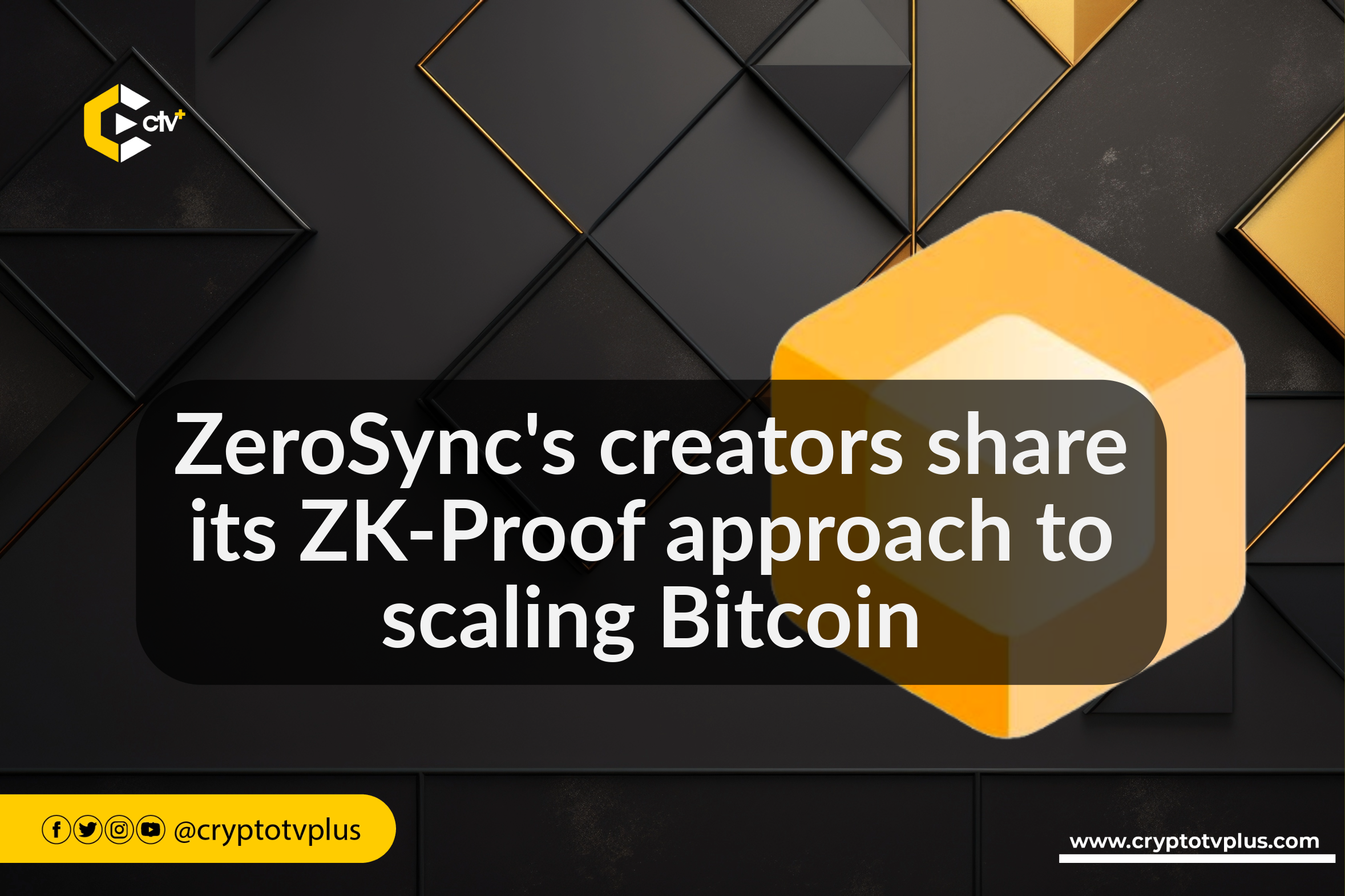FEATURED
ZeroSync’s creators share its ZK-Proof approach to scaling Bitcoin

Robin Linus, the creator of ZeroSync, and Lukas George spoke at the Bitcoin Conference, in Amsterdam, and delivered a captivating presentation that provided an in-depth understanding of their innovative ZK-Proof approach, shedding light on the vision behind ZeroSync and its potential to transform the scalability of the Bitcoin network.
ZeroSync is a Swiss nonprofit association created by three German computer scientists to help scale Bitcoin by using zero-knowledge proofs (zk-proofs). This cryptographic technique allows someone to prove the authenticity of data without revealing the data itself.
The problem of starting a Bitcoin node and the solution
Lucas introduced a new perspective on the challenge of initiating a Bitcoin node. Despite the large number of Bitcoin users, the actual amount of full nodes is relatively small, around 50,000. This limitation arises from the ever-expanding chain size, currently at 500 GB, which makes it increasingly difficult for individuals to maintain fully operational nodes.
However, Lucas brings up an intriguing solution that involves leveraging zero-knowledge proofs (ZKPs) to address this issue.
By utilizing ZKPs, it becomes possible to compress the data and reduce the computational load required for bootstrapping a node, all while upholding the security of Bitcoin.
In this approach, the Bitcoin consensus rules and blockchain data are fed into a prover, which is capable of cryptographically proving a statement for a verifier. Although the process involves complex math for the prover, it is efficient for the verifier.
The outcome is a remarkable “state proof” that can shrink 500 GB of data down to just a single megabyte or two of uncompressed data. The major advantage here is that this compression solution is voluntary and does not require any disruptive drama or forks. Moreover, the proofs can be detached and independently verified, adding an extra layer of reliability.
ZK Coins: a new approach to blockchain design
Speaking further, Robin introduced the new protocol the firm is working on called ZkCoins. He noted that it is a protocol that is RGB combined with zero-knowledge proofs. The new protocol, named ZK Coins, aims to address fundamental limitations in current blockchain designs, offering enhanced scalability, privacy, and unique features.
He explained that Zk Coins starts with a key idea presented by Andrew Poelstra in 2017 – using the chain for what it’s good at creating an immutable ordering of commitments to prevent double-spending. The concept aligns with the idea of client-side validation, where recipients verify the validity of received coins off-chain.
He added that while RGB and Taro, existing protocols built on similar ideas, are effective, they have peculiar challenges, which ZK Coins addresses. It does this by introducing a novel approach to compressing token history.
Instead of providing a detailed transaction history, ZK Coins offers a succinct proof of validity, making transactions more compact and efficient.
Key properties of ZK Coins
Speaking on the key values of ZK Coins, Robin said it brings in instant verification using succinct proofs. Succinct proofs, specifically Zero-Knowledge Proofs (ZKPs), are cryptographic techniques that allow one party to prove to another that they know a specific piece of information without revealing the information itself.
He also said that ZK Coins are scalable as they can achieve up to 100 on-chain transactions per second. Regarding privacy and dealing with UTXO sets, the creator noted that ZK Coins provides privacy comparable to Zcash, protecting transaction values and graphs and allowing for the decoupling of UTXO sets, avoiding unnecessary bloat.
Beyond the key features mentioned, he revealed that the protocol introduces the ability to pay transaction fees directly in tokens. This feature enhances interoperability, enabling seamless trustless trading between different tokens, such as pegging an Ethereum-based USDC to Bitcoin.
Bit VM
In addition to ZK Coins, the presentation introduced Bit VM, a virtual machine designed to facilitate arbitrary computation on the Bitcoin network. The Bit VM differs from traditional smart contract platforms in that it operates in a proof verifier setting.
Rather than being fully permissionless, it involves a dance between a prover and a verifier to commit and validate computations.
Bit VM aims to provide trust-minimized bridges between Bitcoin and other protocols, allowing for features like scalability, privacy, and more.
The presentation emphasized the role of multiple verifiers in ensuring the security and reliability of the protocol, minimizing the trust required.
Bit VM’s design allows for running complex computations on Bitcoin, offering a new design space for applications. While it does not promise instant solutions to all challenges, it opens doors to innovative possibilities, including decentralized finance (DeFi) applications.
They also mentioned ongoing research collaborations with Blockstream and outlined plans to share a protocol specification with the community for feedback. The focus is on addressing challenges such as the choice of proof systems and ensuring trust-minimized bridges between different protocols.
Read also; Calimero Network’s CEO discusses community shard for data privacy in Web3
























